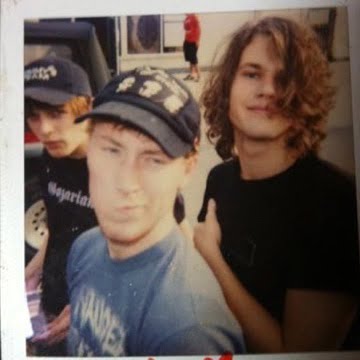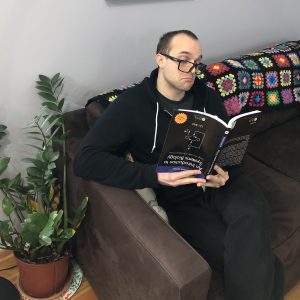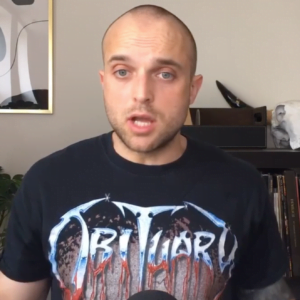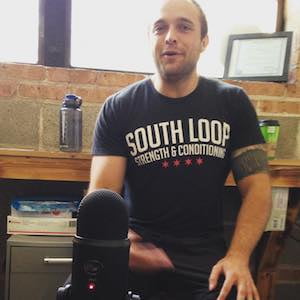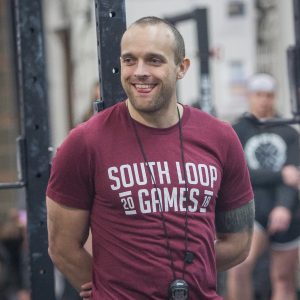Do you are about looking good naked?
Do you care about six pack abs?
Do you care about setting a personal record on your back squat?
If so, congratulations – you’re probably already an athlete in some form.
But not everybody cares about these things. In fact, some people find these kinds of competitive or aesthetic goals to be a turn-off.
What – if anything – should motivate these folks to train?
Is it worth the time and energy spent in the gym if you don’t have very specific performance or aesthetics-based goals?
In this episode, my childhood friend John Friel interviews me about why a non-exercise-inclined person might actually care about physical training.
Possible reasons include: mental acuity, healthy longevity, and stress reduction.
John was one of the kids in AYSO soccer sitting in the back picking grass – so that should give some framework for where his athletic ambitions lie.
He is a self-taught programmer currently working on an NYC-based start-up called Art in Res (creating a marketplace connecting artists with collectors – and mayhaps disrupting the entrenched gallery structure???).
John and I have honed our conversational sparring skills over decades – and I thought it would be interesting to have him ask me more detailed questions about some of the health and fitness related topics that we’ve discussed in the past – this time with microphones present.
Check out the full conversation to hear:
- How training affects mental acuity and cognitive energy – and how the discipline to get unpleasant things done and the ability to deal with stress in training can transfer over to increased focus and resiliency in other areas of life.
- How the “domains of health” (training, nutrition, sleep, stress reduction, and social connection) affect performance and longevity – with consistency being the key to unlocking results.
- How self-experimentation may not be the best way to achieve results – most people don’t have enough knowledge to self-experiment in a reasonable way and will be far too reactive to noisy results. It’s often better to enlist the help of an expert.
Check out the episode at the links below. If you enjoyed the episode, the best way to support the show is to share with your friends, so send them a link.
Listen Here
- iTunes
- Overcast
- Google Play
- mp3
- Or stream here:
- If you’re enjoying the show, why not a leave a review? It makes a difference in terms of other people finding the show.
Check out more from John here:
- Instagram: @art_in_res
- Website: www.artinres.com | www.xhbtr.com | www.johnfriel.net
Show Notes
- [03:25] How fitness is still important for people who don’t care about chasing six pack abs or a back squat PR. “To what end is fitness valuable?”
- [08:44] Training may increase your overall “pool of energy” throughout the so – even though you’re taking time out of your day to exercise – your overall productivity may be higher
- [17:21] Understanding the concept of asset allocation for fitness goals in terms of trading-off short-term performance improvements for long-term longevity losses – and how to maximize healthy longevity
- [26:59] How does the concept of “antifragility” compare to the concept of mechanical wear and tear in biological systems? And what are the mechanisms for injury or loss of range of motion?
- [35:20] How does the nervous system control range of motion? And how does this relate to stretching? And does lifting weights make you tight?
- [46:37] How does a layperson go about integrating this information into their training? How do you decide what information to trust? “Anything is better than nothing” – gaining traction to build momentum and develop consistency.
- [51:15] The 5 buckets of health that affect performance and longevity: training, nutrition, sleep, stress reduction, and social connections. Nutrition is the “biggest bang for your buck” for health – and how consistency in one bucket of health “breeds consistency” in other buckets.
- [57:41] How training helps with stress reduction management by improving “your overall ability to tolerate stress…by stressing yourself appropriately” (but not excessively). And how great athletes are able to mount very robust stress responses – and then recover very quickly.
- [1:08:25] What do you think about the idea of someone treating themselves as a guinea pig? Should individuals engage in self-experimentation? And the need to set goals and iteratively approach them with the guidance of an expert.
- [1:20:19] Do you have recommendations for resources that people can use to self-educate on the different pillars of health?
Links and Resources Mentioned
- What is Fitness?
- Gamification
- When: The Scientific Secrets of Perfect Timing by Daniel H. Pink
- Daniel Pink on the Tim Ferriss Show
- National Football League
- IRONMAN triathlon
- Modafinil
- Peter Attia
- Standard of care
- Statins
- PCSK9
- Antifragility
- Stuart McGill
- Hormesis
- Antioxidant
- DNS (Dynamic Neuromuscular Stabilization
- Hypermobility
- Aubrey de Grey
- Red Queen hypothesis
- Alice's Adventures in Wonderland
- CrossFit
- Circadian rhythm
- Boiling frog
- Super Size Me
- Fat Head
- Slayer
- Supertraining by Yuri V. Verkhoshansky & Mel C. Siff
- The Hungry Brain: Outsmarting the Instincts That Make Us Overeat by Stephan J. Guyenet, Ph.D.
- Perfect Health Diet: Regain Health and Lose Weight by Eating the Way You Were Meant to Eat by Paul Jaminet Ph.D. & Shou-Ching Jaminet Ph.D.
- Paleolithic diet
- Ultimate MMA Conditioning by Joel Jamieson
- OPEX Fitness
- Olympic Weightlifting: A Complete Guide for Athletes & Coaches by Greg Everett
- Movement: Functional Movement Systems by Gray Cook
- PRI (Postural Restoration Institute)
- Why Zebras Don't Get Ulcers by Robert Sapolsky
